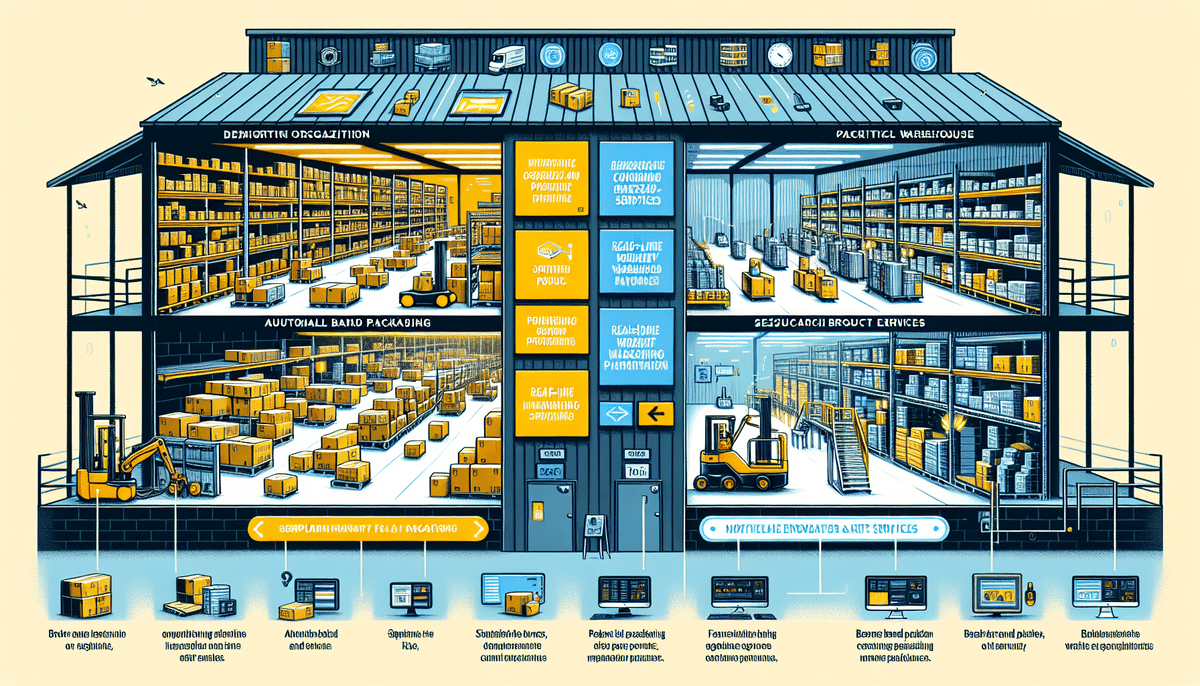ShipBob vs Flowspace: Comprehensive Fulfillment and Warehousing Solutions
When it comes to fulfillment and warehousing for your business, selecting the right partner is crucial for operational efficiency and customer satisfaction. Two of the leading services in this space are ShipBob and Flowspace. This article provides an in-depth comparison of these two providers based on various parameters to help you determine which one aligns best with your business needs.
Overview of ShipBob and Flowspace
Introduction to ShipBob
ShipBob is a cloud-based logistics platform founded in 2014, specializing in providing warehousing and shipping solutions to small and medium-sized eCommerce businesses. With a network of fulfillment centers across the United States and Canada, ShipBob offers services such as inventory management, order fulfillment, and shipping, supporting both B2B and B2C operations.
ShipBob emphasizes real-time tracking and analytics, enabling businesses to monitor inventory levels and shipment statuses. Their customizable packaging solutions also help businesses maintain a consistent brand image and enhance the customer unboxing experience.
Introduction to Flowspace
Flowspace, established in 2017, has rapidly become a significant player in the warehousing and fulfillment industry. They offer an on-demand warehousing solution, allowing businesses to rent storage space as needed. This flexibility is particularly beneficial for companies with seasonal demand fluctuations or those requiring inventory storage across multiple locations.
Flowspace provides a user-friendly platform for managing inventory, orders, and shipments, streamlining operations for businesses of varying sizes.
Key Features and Services
Warehousing Solutions
ShipBob's Warehousing Model
ShipBob operates its own network of fulfillment centers equipped with advanced technological features, including temperature-controlled storage for temperature-sensitive products. This extensive network ensures fast and affordable shipping options across North America.
Flowspace's On-Demand Warehousing
Flowspace offers flexible warehousing solutions where businesses can rent space based on their current needs. This pay-as-you-go model reduces overhead costs and provides scalability, accommodating businesses with fluctuating inventory levels.
Order Fulfillment and Shipping
ShipBob's Fulfillment Services
ShipBob handles the entire fulfillment process, from receiving inventory to picking, packing, and shipping orders. They offer multiple carrier options, including UPS, FedEx, and USPS, and provide real-time tracking information for customers.
Flowspace's Shipping Capabilities
Flowspace provides extensive shipping services, including international air and ocean freight options, which ShipBob does not currently offer. While Flowspace does not provide same-day or next-day delivery options, their comprehensive shipping services cater to businesses needing global reach.
Inventory Management
Advanced Tools with ShipBob
ShipBob offers robust inventory management features, including real-time tracking, automatic reorder notifications, and detailed analytics. These tools help businesses make informed decisions about their supply chain and optimize inventory levels.
Flowspace's Flexible Management
Flowspace focuses on providing a flexible and scalable warehouse solution, allowing businesses to adjust their inventory storage needs based on demand. Their platform integrates seamlessly with popular eCommerce platforms, facilitating efficient inventory and order management.
Pricing Structures
ShipBob's Pricing Model
ShipBob charges a fulfillment fee per order and a storage fee based on the size and duration of inventory storage. Additionally, ShipBob offers discounted shipping rates through partnerships with major carriers, potentially lowering overall shipping costs for businesses.
Flowspace's Pay-As-You-Go Pricing
Flowspace employs a pay-as-you-go pricing model, charging based on the volume of space used and the duration of storage. This model eliminates long-term commitments, making it cost-effective for businesses with variable inventory needs.
Cost Considerations
When choosing between ShipBob and Flowspace, it's essential to consider your business's specific needs and budget. ShipBob may be more suitable for businesses with high order volumes seeking advanced logistics management, while Flowspace's flexible pricing is advantageous for businesses with fluctuating storage requirements.
Platform Usability
User Experience
Both ShipBob and Flowspace offer intuitive platforms for managing inventory, orders, and shipments. ShipBob's platform includes features like customizable packing slips and real-time inventory tracking, whereas Flowspace integrates seamlessly with eCommerce platforms like Shopify and Amazon, simplifying order and inventory management.
Customer Support
ShipBob provides dedicated account managers and 24/7 customer support, ensuring businesses receive timely assistance. Flowspace offers tiered support based on subscription plans, including chatbot features for quick responses during non-business hours.
Pros and Cons
ShipBob
- Pros:
- Advanced inventory management tools
- Customizable packaging options
- 24/7 dedicated customer support
- Extensive network of fulfillment centers
- Cons:
- Higher costs compared to some competitors
- May be less flexible for businesses with fluctuating storage needs
Flowspace
- Pros:
- Flexible, on-demand warehousing
- Pay-as-you-go pricing model
- International shipping options
- Seamless integration with eCommerce platforms
- Cons:
- Longer lead times for shipping
- Customer support limited to business hours in some plans
Suitability for Business Sizes
Small Businesses
For small businesses, ShipBob offers advanced logistics management and a robust infrastructure, making it ideal for those looking to scale. Flowspace is also suitable, especially for businesses with unpredictable storage needs or seasonal fluctuations.
Large Businesses
Large businesses requiring customized solutions and extensive fulfillment networks may find ShipBob more aligned with their needs. However, Flowspace's on-demand warehousing can be beneficial for managing overflow storage or expanding into new markets without significant upfront investments.
Conclusion: Choosing Between ShipBob and Flowspace
The decision between ShipBob and Flowspace hinges on your business's unique needs. If your business handles a high volume of orders and requires advanced inventory management with a robust fulfillment network, ShipBob is likely the better choice. Conversely, if flexibility, scalable storage solutions, and cost-effective pricing are your primary concerns, Flowspace may be more suitable.
It is recommended to evaluate both services based on factors such as storage and fulfillment requirements, budget constraints, and the level of customer support needed to determine the best fit for your business.




















